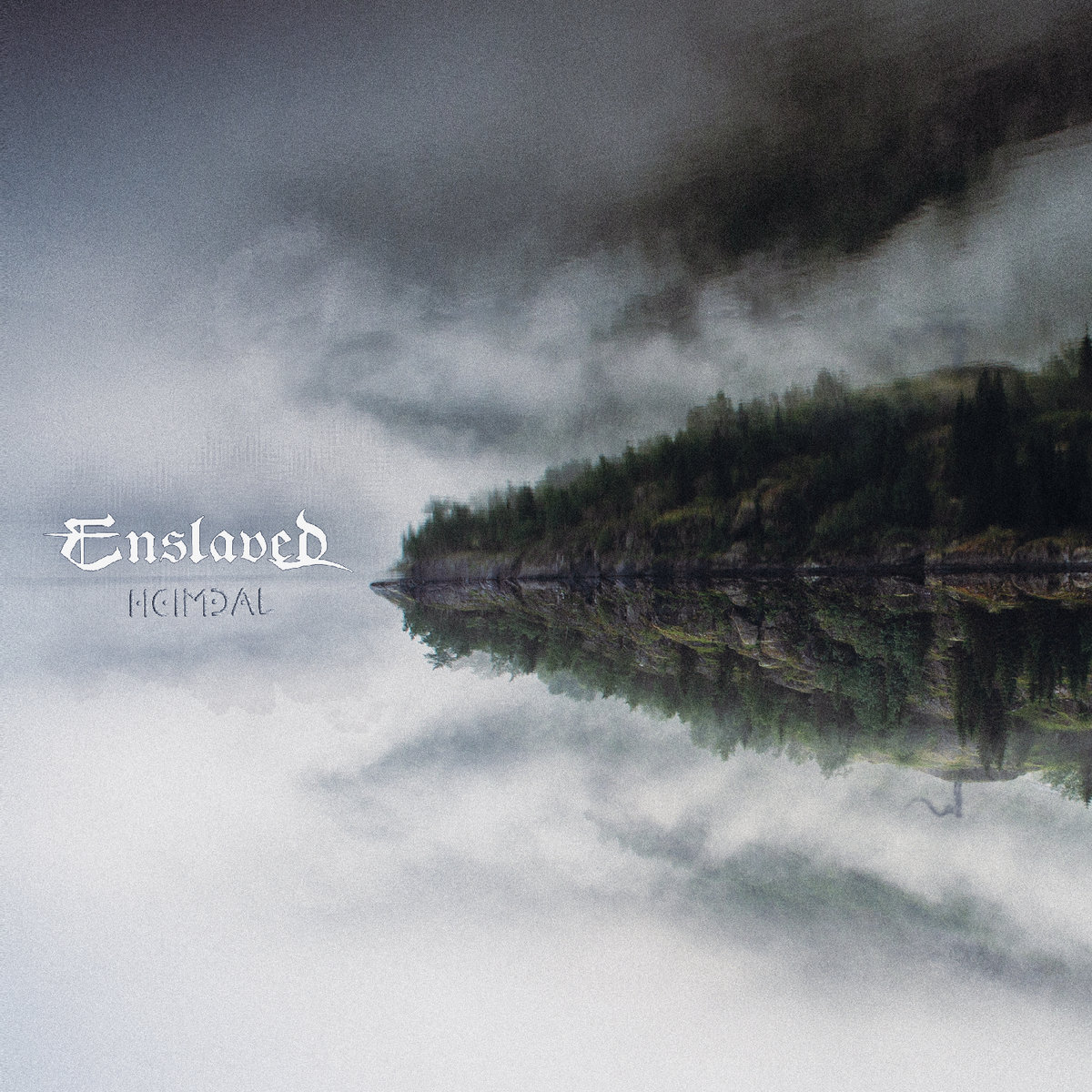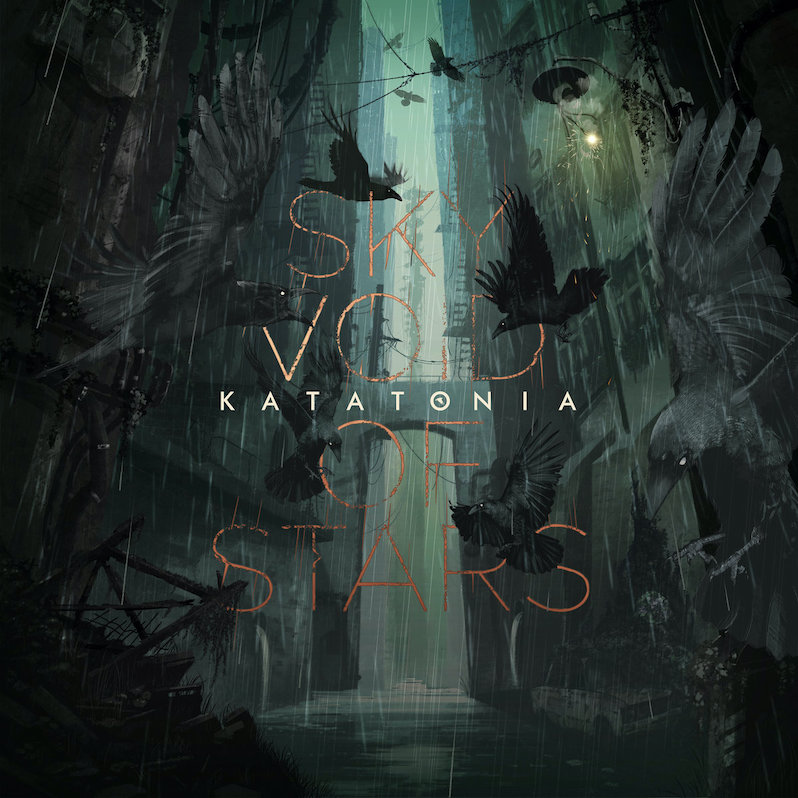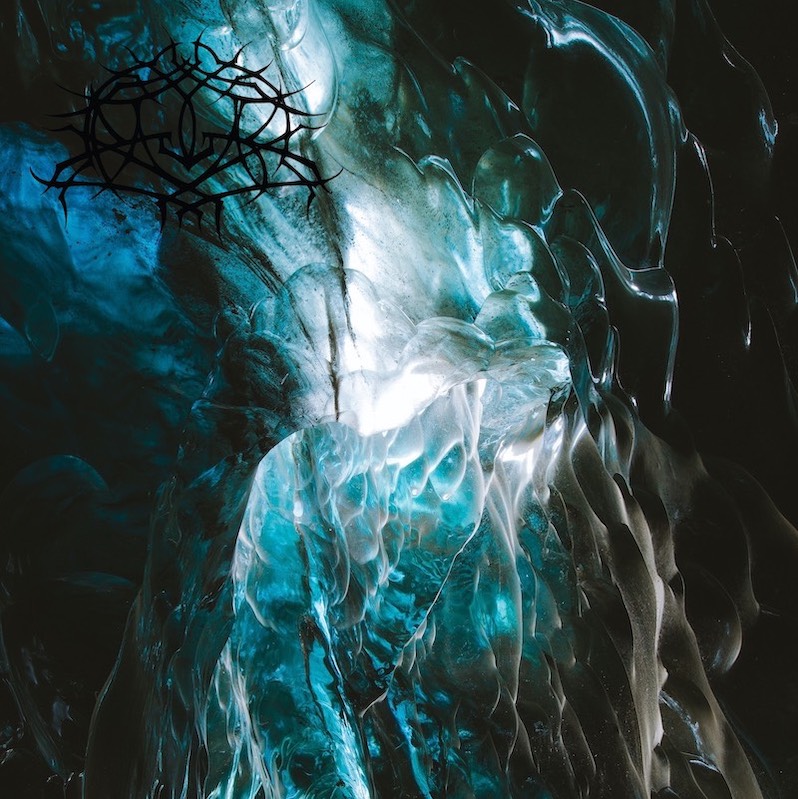Enslaved : Heimdal

The first time I listened through the latest Enslaved record some weeks ago, I thought it was good. By that point, what amounted to roughly half the album had already come out as singles, albeit in a different order, and some of the tracks had been released on an intriguing and spectral EP earlier, so it seemed to indicate a broad and deeply mystical progressive record, precisely the type I adore most from this group. That first listen, as I said, confirmed that the album was good, but not, well… not good as an album, rather as a collection of seven good songs, which was a curious problem I’d never encountered with Enslaved before. Prior to 2020’s Utgard, the record preceding this one, the group had a continuous run of roughly 25 years of music, starting just at the tail end of the more purely black metal period as they began to concretely dial up the prog tendencies in their work, in which the album form seemed to be the root conceptual image for the group. Sound palettes would change across albums, relations to extreme metal and progressive music and folk would change, thoughts about mysticism versus concrete reality would change, but what would remain static was the use of the album as a cohesive document. At times, this was to their detriment, at least in the eyes of some fans; a record dialing into a sound you weren’t particularly thrilled in would result in roughly an hour of material you couldn’t strongly discern or, worse, were just uninterested in. But that was at heart a problem of audiences and not the band, who excelled at making concrete their visions and then moving forward.
Utgard, the preceding record, was a break stylistically for the group, at least if you follow them closely enough to perceive it. Like all art rockers, Enslaved has always had streaks of art punk and post-punk in their music, hallmark genres of any contemporary art musician and especially fundamental sonic ideas for contemporary versus classic prog. Utgard, however, dialed these up sharply, while also incorporating more discreetly electronic music elements, resulting in a set of far tighter run-times on the songs and, dare I say it, a substantially more striking set of individualism among the tracks. I am a long-time fan of the band, so don’t read that as a knock to their previous work as much as acclaim at how the specific changes for Utgard were a net benefit and indicative of an exciting new chapter in the band’s lifespan. Given their tendency to explore a sonic space for a few records before moving on, I, and I believe everyone else, apparently rightly assumed their next album would be a further exploration of the style. Given what had just come, there was reason for excitement.
Which made that first listen of Heimdal so frustrating for me. Worse still, there isn’t a bad song here, each piece having a striking combination of post-punk and progressive rock with grace elements of electronica and heavy metal as accents. That lack of a distinctly bad track or a specific segment that would ruin the flow of the record makes pinpointing exactly how this record falls short frustrating and complicated; what remains, however, is that undeniable sense. Part of the issue is that where previous records had tracklists that flowed in a strongly continuous way song to song and Utgard returned to a more delineated song-form, Heimdal feels far more like a compilation of largely unrelated material. It’s rare that the ending of a piece here feels like it presages the beginning of the next in a way that feels cumulative, making it so that it’s not often that any new song can capitalize and build off of what came before, instead needing to rebuild your interest and emotional investment with each change of track. Similarly, the mystic and spiritual aura that used to compel Enslaved albums here feels confused, aimless, as though the thoughts were all there but the final constructed image and direction hadn’t been full decided on before setting everything to tape.
This feeling did, however, begin to fade as the number of listens I logged began to add up and tend toward the double-digits. My frustrations with the record’s hobbled development on the conceptual and album-length end did finally give way to appreciating that these are, undeniably, seven strong songs. Sure, the album opening may not really feel like how an album should open, nor does the title track album closer end in a way that feels like a proper send off to an album, creating that open-ended middle-part-of-a-trilogy unsatisfied feeling, but the material here is still well-composed and well-played. This is, ultimately, only the second record of the band in this specific arrangement of styles, so the fact that it’s less compelling than its predecessor is ultimately not a sinking criticism. It does, however, sadly make the album rank as perhaps their least satisfying of the past ten years or more. This is the difficulty in being consistently brilliant; sometimes being merely good feels far duller in comparison.
Label: Nuclear Blast
Year: 2023
Similar Albums:
Langdon Hickman is listening to progressive rock and death metal. He currently resides in Virginia with his partner and their two pets.




